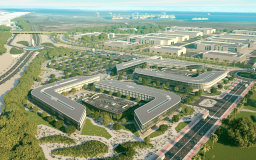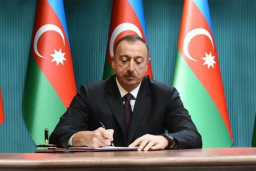The Asian Development Bank (ADB) has approved a $131.5 million loan that will help improve a key railway line in Azerbaijan for better regional connectivity.
The financing will complete the rehabilitation of about 166 kilometers of double-track main line, civil structures, and level crossings of the Sumgait–Yalama rail line. It serves as additional financing for the Railway Sector Development Program approved in 2017, which is helping enhance railway operations in the country.
“Upgrading and modernizing rail service will enable Azerbaijan to provide safer, cheaper, and more energy-efficient transport,” said ADB Director General for Central and West Asia Yevgeniy Zhukov. “At the same time, it will help Azerbaijan optimize its strategic location at the crossroads of Europe and Asia.”
The project is aligned with the transport strategy of the Central Asia Regional Economic Cooperation (CAREC) Program, which aims to contribute to regional economic development by improving rail and multimodal infrastructure and commercializing and reforming railway activities.
Under ADB’s Railway Sector Development Program, Azerbaijan Railways (ADY) implemented comprehensive reforms in 2018–2019 that strengthened its financial capacity and railway management. Since then, ADY continued efforts to improve its operational and financial performance. Between 2018 and 2022, ADY’s freight transport grew by 34%, from 14 million tons to 18.7 million tons. More than 80% of this is international or transit traffic.
As Asia and the Pacific’s climate bank, ADB is also supporting Azerbaijan’s Presidency of COP29, including via capacity building ahead of the landmark United Nations climate summit set to take place in Baku in November.
Since Azerbaijan joined the bank in 1999, ADB has committed more than $5 billion in sovereign and private sector assistance, including in transport, energy, health care, and agriculture.
ADB is committed to achieving a prosperous, inclusive, resilient, and sustainable Asia and the Pacific, while sustaining its efforts to eradicate extreme poverty. Established in 1966, it is owned by 68 members—49 from the region.




